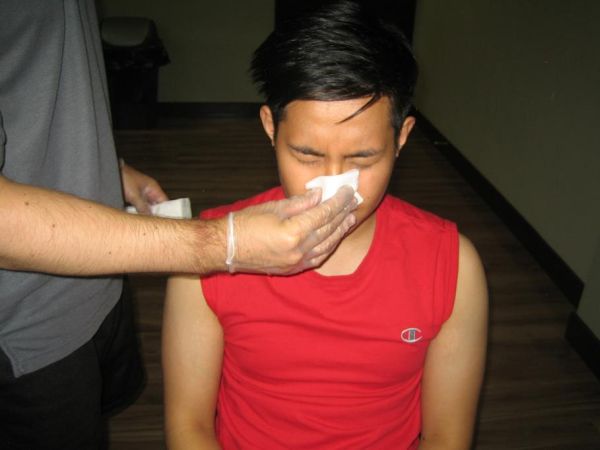Postnasal drip is a common condition linked with common cold, allergies and other health issues. The mucus has a vital role since it traps germs and other debris that can cause harm. Generally, mucus drains down the back part of the throat but most of the time we are not aware of it. If the mucus becomes excessive thin or thick, it is a condition called as postnasal drip.
It is important to note that postnasal drip usually becomes an issue of concern since it causes the mucus to thin out or become too thick. The treatment usually depends on the main cause of the condition.
Home treatment
There are some remedies for postnasal drip that have been tried regardless of the exact cause. The remedies performed at home for postnasal drip slightly vary depending on whether the secretions are thin or thick.

Treating allergies due to postnasal drip
If the postnasal drip is triggered by allergies, the following measures can be used:
- Avoid the potential triggers
- Use an antihistamine such as diphenhydramine
- If the potential triggers have not been identified, an allergist must be consulted to determine the cause and discuss the possibility of allergy shots
- If suffering from pollen allergy, it is vital to keep windows shut during the peak pollen season and take a shower after entering the house to eliminate any pollen that adhered to clothing or hair.
- Decongestants such as pseudoephedrine can be utilized but should not be used for more than 3 days in a row to avoid rebound congestion.
Management if caused by infections
Postnasal drip can also be triggered by infections including the flu, common cold, RSV or sinusitis. The following measures are available but it is best to consult a doctor first to rule out the need for antibiotics.
- Increase the intake of water or other fluids
- Decongestants can be used but avoid using longer than 3 days to avoid rebound congestion. These medications are ideal for adults but should not be given to children.
- Humidifiers and nasal saline mists can help thin out the mucus
- Vapor rubs or other products that contain menthol are useful but should be used as prescribed. These are not suitable for small children.
Depending on the exact cause for the postnasal drip, consulting a doctor is a wise step so that a diagnosis can be given. Depending on the findings of the doctor, the appropriate treatment can be started to effectively deal with the condition.

